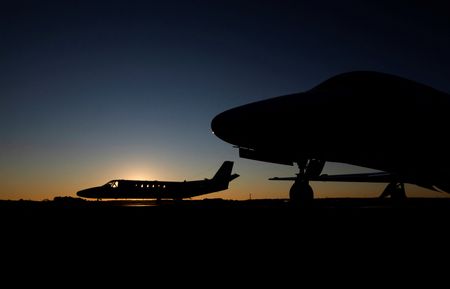 1
1 1
1

By David Shepardson
WASHINGTON (Reuters) -A group representing major U.S. airlines “strongly urged” the Federal Aviation Administration (FAA) to extend a proposed deadline to June 2024 to retrofit airplane altimeters to ensure they are not susceptible to 5G wireless interference.
Airlines for America (A4A), which represents American Airlines, Delta Air Lines, United Airlines and others also asked the FAA to revise a proposed 5G safety directive “to reflect technical realities and the continued safe operation of many aircraft.” The group warned a “material number of aircraft” in U.S. fleets will not be modified by July and without changes it could “severely limit operations” and lead to flight delays and cancellations.
Wireless carriers opposed the request.
In January, the FAA proposed requiring passenger and cargo aircraft in the United States to have 5G C-Band-tolerant radio altimeters or approved filters by February 2024. The agency reiterated on Friday it will evaluate all comments.
Concerns that 5G service could interfere with airplane
altimeters, which give data on a plane’s altitude and are crucial for bad-weather landing, led to disruptions at
some U.S. airports last year involving international carriers.
Also Friday, a coalition including Boeing, Airbus Lockheed Martin, Raytheon, pilots unions, and airlines said the directive “does not provide sufficiently robust controls to ensure safety as both aviation operations and wireless services co-evolve” and does not include a realistic cost estimate.
Verizon Communications and AT&T in June voluntarily agreed to delay some C-Band 5G use until July as air carriers work to retrofit airplanes to ensure they will not face interference.
Wireless carries spent more than $80 billion on the C-Band 5G spectrum, including $52.9 billion by Verizon in auction and clearing costs. The FCC did not comment.
Wireless trade group CTIA, which represents Verizon and AT&T, said the FAA provided ample time for airlines and should not extend the deadlines.
“By requiring accountability, the FAA is taking
important steps to ensure radio altimeter performance is more resilient while enabling timely C-Band 5G deployment,” CTIA said.
The International Air Transport Association (IATA), which represents more than 100 carriers flying to the United States, warned costs would be far higher than the $26 million estimated by FAA. IATA said costs could be at least $637 million and said many airlines risk missing deadlines.
(Reporting by David Shepardson; editing by Diane Craft and David Gregorio)